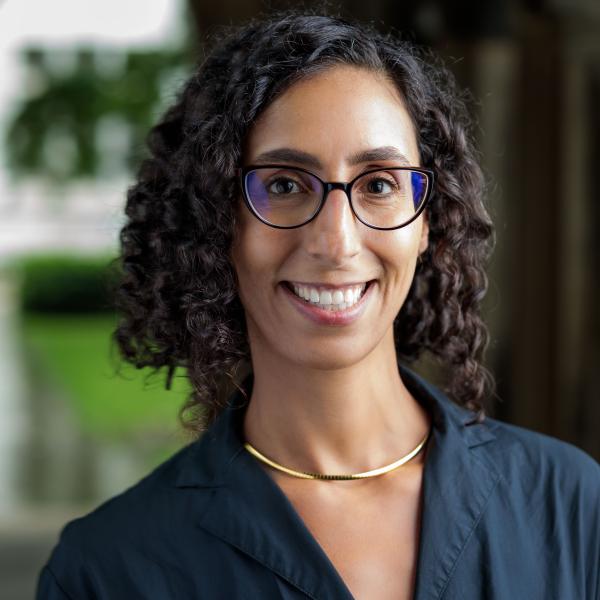
Affiliated with the Center for Middle Eastern Studies; Center for the Study of Gender and Sexuality; Center for the Study of Race, Politics, and Culture; and Department of Romance Languages and Literatures, the Department of Romance Languages and Literatures, and the Divinity School
Trained in Comparative Literature, I am a scholar of twentieth- and twenty-first century literature, visual culture, and criticism from North Africa and the Middle East. My research is at the intersection of literary and cultural studies, Islamic philosophy, film and art theory, as well as gender and sexuality studies. Working across North Africa and the Middle East, as well as Arabic and French, my work attends to the uneven histories of aesthetic sensibilities, literary forms, and modes of critique. Adopting an interdisciplinary and transhistorical lens, I interrogate the consolidation and canonization of literary forms—such as the novel and literary journal—as well as genres—such as speculative and science fiction. I consider how the universalization of Euro-American literary taxonomies, theoretical paradigms, and geopolitical logics reify certain reading practices while occluding others. My research subsequently emphasizes the dialogic relationship between aesthetics and ethics by engaging a rich body of Islamic philosophy that disrupts the secularizing tendencies of contemporary literary studies.
My first book, The Literary Qurʾan: Narrative Ethics in the Maghreb (Fordham University Press, 2019) was awarded the ACLA’s 2018 Helen Tartar Book Subvention Award and the MLA’s 2020 Aldo and Jeanne Scaglione Prize for Comparative Literary Studies. It explores the influence of Qurʾanic textual, hermeneutical, and philosophical traditions on Arabophone and Francophone fiction from Tunisia, Algeria, and Morocco. Placing canonical Francophone writers into conversation with lesser-known Arabophone ones, The Literary Qurʾan stages a series of pairings that invite paratactic readings across texts, languages, and literary canons. Challenging the canonization of secular modes of reading that occlude religious epistemes, practices, and intertexts, the study attends to literature as a site in which the process of entextualization obscures ethical imperatives.
My current book project, Printed Matter(s): Critical Histories of Maghrebi Cultural Journals, theorizes twentieth-century Arabophone, Francophone, and bilingual journals from the Maghreb. Maghrebi cultural journals bridged genres and textual practices across the arts, literature, social and political thought, philosophy, and religion. The book attends to the unique temporal logics, readership communities, and affiliative networks within Maghrebi print culture histories. Looking beyond the nation as both an imagined and sovereign entity, I consider how periodicals model a praxis of cultural pedagogy centered on a shared set of ethical values, aesthetic interests, and literary sensibilities.
I serve on the editorial boards of the Middle Eastern Literatures and Journal of Modern Literature.
I teach courses in and advise students across Comparative Literature, Middle East and North African Studies, Islamic Studies, Gender and Sexuality Studies, as well as French and Francophone Studies.
